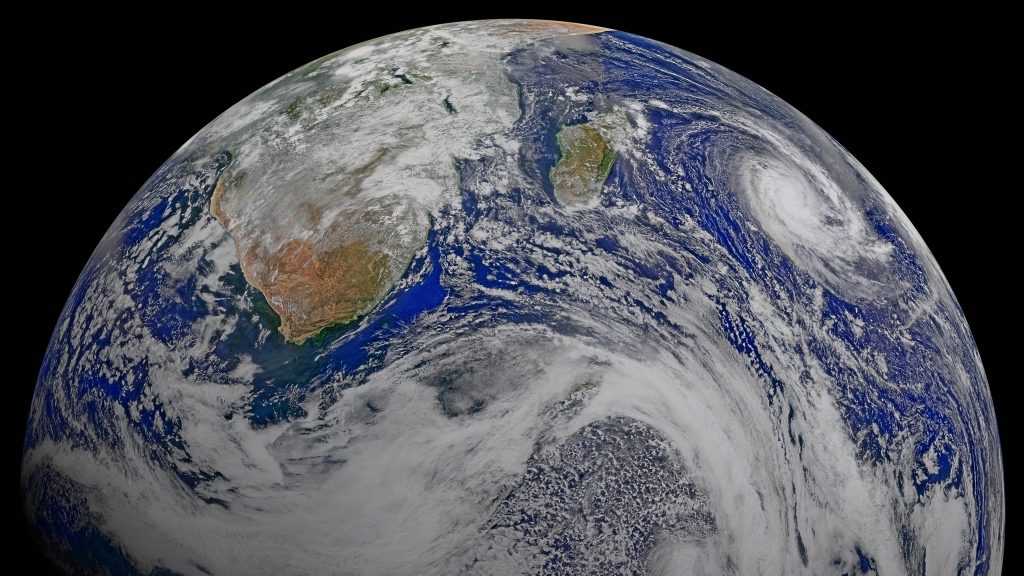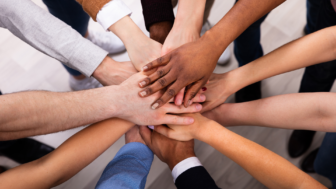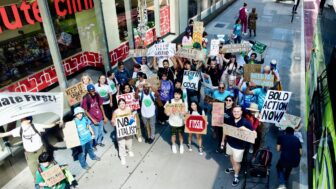Record flooding. More hurricanes. Brett Kavanaugh. And now a dire warning that the world has until 2030 to stem the impacts of climate change.
How are you feeling?
It’s a valid question. A new study indicates that changes in weather — and the stress and anxiety around climate change — is impacting Americans’ mental health. With recent headlines like the UN IPCC’s report, in which we are warned that we only have ten years to completely remake our energy system and cut carbon emissions in half, it’s okay to feel scared, and maybe a little bit helpless. It’s easy to feel like we as individuals cannot stop the climate destruction that’s happening or give in to the “doom-and-gloom” narrative that we see all around us.
But it’s NOT okay to do nothing about it. It is much harder, but far more important, to rise above hopelessness and come together as neighbors and do what we can to stop climate change from impacting our homes and our fellow Americans.
While there are times I still feel climate despair, I’m constantly uplifted and inspired by the work we do every day at CCAN. We’re empowering people across the Chesapeake region to take the climate fight into their own hands at the local level. In the near term, we cannot wait for Trump’s EPA to take action for us at the national level – the local level is where it’s at:
- In D.C., the DC Climate Coalition is making moves on the bill that would move the District to 100% renewable energy by 2032 – a comprehensive bill that is the result of over two years of organizing and meetings with impacted stakeholders to form a just and equitable bill.
- In Maryland, hundreds of voters have taken pledges to vote for clean energy this November and have taken the “No New Fossil Fuels” pledge – stating that they will not support any new gas pipelines or other harmful energy source to be constructed. We’re also working to expand Maryland’s Renewable Portfolio Standard by doubling and put the state on track to 100% renewable energy. . And we’re seeing residents from across Maryland say NO to pollution-spewing trash incinerators and saying yes to energy alternatives like community solar.
- In Virginia, we’ve seen a new wave of grassroots resistance to fossil fuel pipelines like Atlantic Coast Pipeline (ACP) and Mountain Valley Pipeline (MVP). A combination of civil disobedience, public outcry, and legal challenges in the courts have resulted in permits to be tossed, temporarily halting construction on the MVP. Meanwhile, we’re campaigning for Virginia to join the Regional Greenhouse Gas Initiative, a needed step to reduce statewide carbon emissions.
What YOU can do:
- Make sure you’re signed up on our email list and be sure to write in your zip code to get the important climate updates in your area. Want to get up-to-the-minute updates on our work? Like our Facebook pages for CCAN and our sister organization and advocacy arm CCAN Action Fund..
- Register to vote OR check to make sure you’re registered and make a plan to vote on November 6th.
- Volunteer with us. Fill out this volunteer survey and we’ll put you in touch with an organizer in your area who can talk to you about ways you can plug-in.
- Donate to help fund climate victories. If you’re running short on time – donating is the best option. Your donations will help us fund canvassing trainings, hire fellows to help us with our work, and will go towards our everyday campaign work expenses.
Or, do you need to just vent to someone? We want to hear how you feel!
The work we do is hard – but we never lose sight of why we came to the table in this fight. We know it won’t be easy. But we also know that we have the grit, resilience, and tenacity to look the climate crisis in the face and find motivation to keep fighting.
The most important thing to remember is that we’re all in this together. If you’re struggling, talk to your community, speak to a friend, or find mental health services. Together, we can find solutions to our climate crisis and know that there is still hope.
—
If you are in crisis and need immediate support, call or go the website of the National Suicide Prevention Lifeline (1-800-273-8255). Trained workers are available to talk 24 hours a day, 7 days a week. To find a mental health care provider and treatment, read more from the American Psychological Association on how to find services and what to look for.






